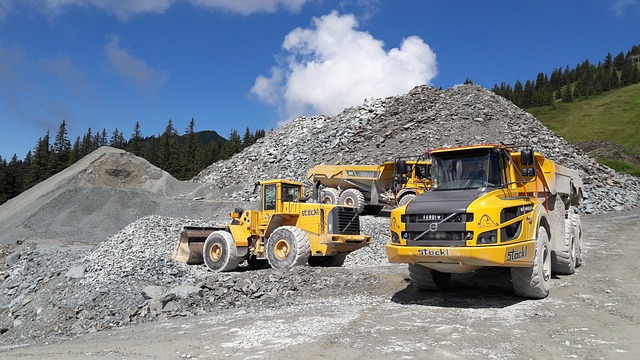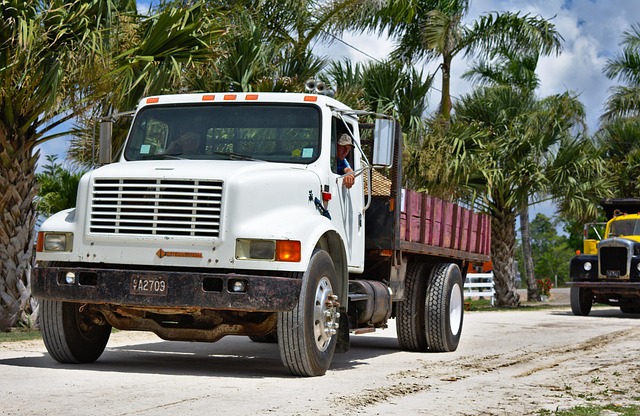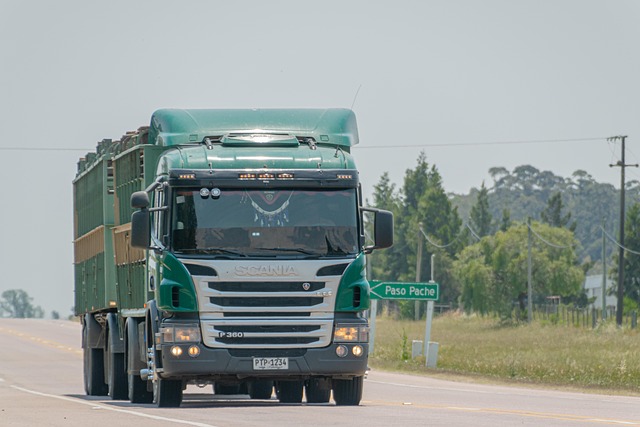Dump truck operators face unique risks like accidents, cargo damage, and weather incidents, requiring specialized dump truck business coverage. This includes specific policies for cargo insurance, comprehensive vehicle protection, and workers' compensation. By evaluating operations and customizing policies, operators can minimize financial losses and legal exposure. Choosing a reputable insurer with comprehensive protection, covering theft, natural disasters, and mechanical issues, ensures peace of mind and minimizes downtime costs.
In the dynamic landscape of heavy haulage, specialized insurance is not just an option—it’s a necessity for dump truck operators. Navigating the intricate web of risks and liabilities associated with this industry requires tailored solutions. This article delves into the critical aspects of understanding dump truck business coverage needs, exploring common risks, and highlighting the benefits of specialized insurance policies. By examining these factors, operators can ensure comprehensive protection and mitigate potential losses in this demanding sector.
- Understanding Dump Truck Business Coverage Needs
- Common Risks and Potential Liability Issues
- Specialized Insurance Policies and Their Benefits
- Choosing the Right Provider for Comprehensive Protection
Understanding Dump Truck Business Coverage Needs

Dump truck operators face unique risks on the job, from accidents and cargo damage to mechanical failures and weather-related incidents. Understanding these risks is crucial when it comes to securing adequate dump truck business coverage. This goes beyond general liability insurance; specialized policies are designed to protect against specific perils commonly associated with this demanding industry.
By assessing their operations thoroughly, operators can identify necessary coverages such as cargo insurance to safeguard against loss or damage to materials being transported, comprehensive vehicle insurance to cover repairs or replacements in case of accidents or vandalism, and workers’ compensation insurance to protect employees in the event of on-the-job injuries. Tailoring their dump truck business coverage to these specific needs ensures operators are prepared for potential challenges, minimizing financial strain and legal exposure.
Common Risks and Potential Liability Issues

Dump truck businesses face a unique set of risks and challenges on the road, which can lead to significant liability issues if not adequately addressed. These vehicles, due to their size, weight, and often hazardous cargo, are involved in a higher number of accidents compared to smaller passenger vehicles. Common risks include rollovers, collisions with other vehicles or pedestrians, and incidents related to the loading and unloading processes.
Liability concerns arise from various angles. Operators may face claims for property damage, personal injuries, or even wrongful deaths if an accident occurs. Additionally, environmental hazards like spills or leaks of cargo are a constant worry, potentially leading to costly clean-up operations and legal repercussions. Specialized insurance for dump truck operators is crucial to mitigate these risks, offering tailored business coverage that addresses the unique needs of this industry, thus providing peace of mind on the bustling highways.
Specialized Insurance Policies and Their Benefits

Specialized insurance policies designed for dump truck operators offer a comprehensive suite of protections tailored to the unique risks and challenges they face on the job. These policies go beyond standard commercial auto coverage, addressing specific needs like liability associated with heavy equipment operation, cargo loss or damage during transport, and worker’s compensation for employees involved in hauling activities. By opting for specialized dump truck business coverage, operators can mitigate financial exposure significantly, ensuring peace of mind and protection against potential claims.
Benefits include enhanced legal defense in the event of accidents or incidents involving their trucks and cargo, as well as access to specialized claims handling services that understand the intricacies of construction and transportation industries. Moreover, these policies often include contingent liability coverage, protecting operators from claims resulting from third-party errors or omissions, and offering additional financial safeguards for businesses facing legal challenges or unexpected expenses related to their dump truck operations.
Choosing the Right Provider for Comprehensive Protection

When selecting an insurance provider for your dump truck business, comprehensive protection should be at the forefront of your considerations. Look for a company that offers tailored policies designed specifically for the unique risks and needs of dump truck operators. This includes not just liability coverage for accidents or damage but also protection against theft, natural disasters, and mechanical breakdowns. A reputable provider will assess your operations, understanding the specific hazards involved in transporting heavy loads, to ensure you have adequate coverage.
Consider providers with a proven track record of providing dump truck business coverage that goes beyond minimum legal requirements. You want a partner who understands the financial implications of downtime for your business and offers policies that include replacement costs, rental reimbursement, and potential loss-of-use damages. Additionally, seek out companies with robust customer support and efficient claims processes, ensuring you have access to resources when and where you need them most.
For dump truck operators, navigating the world of specialized insurance is crucial to mitigate common risks and potential liability issues. By understanding your business’s unique needs, comparing specialized policies, and choosing a reputable provider, you can ensure comprehensive protection for your operations. This tailored approach to dump truck business coverage enables operators to focus on their core mission: efficiently transporting materials while managing risks effectively.
